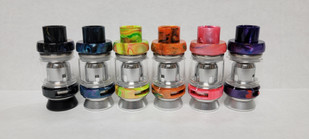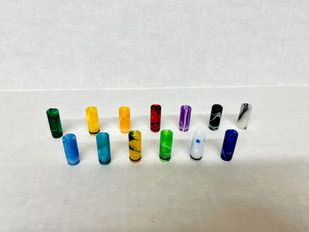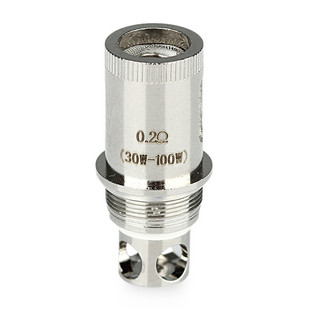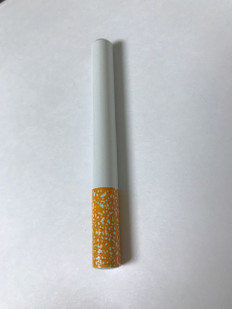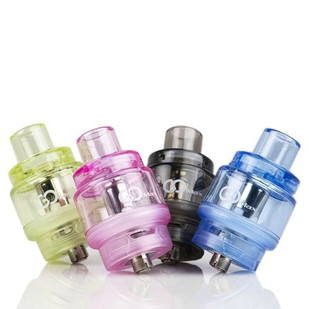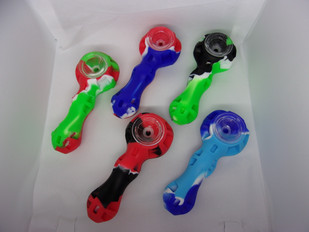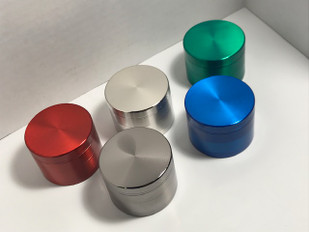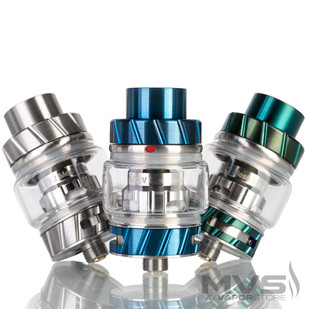- Home
- The Vape Mall Blog
- CBD Products
The Vape Mall Blog
How Effective is CBD After Getting a Body Piercing?
Posted by on
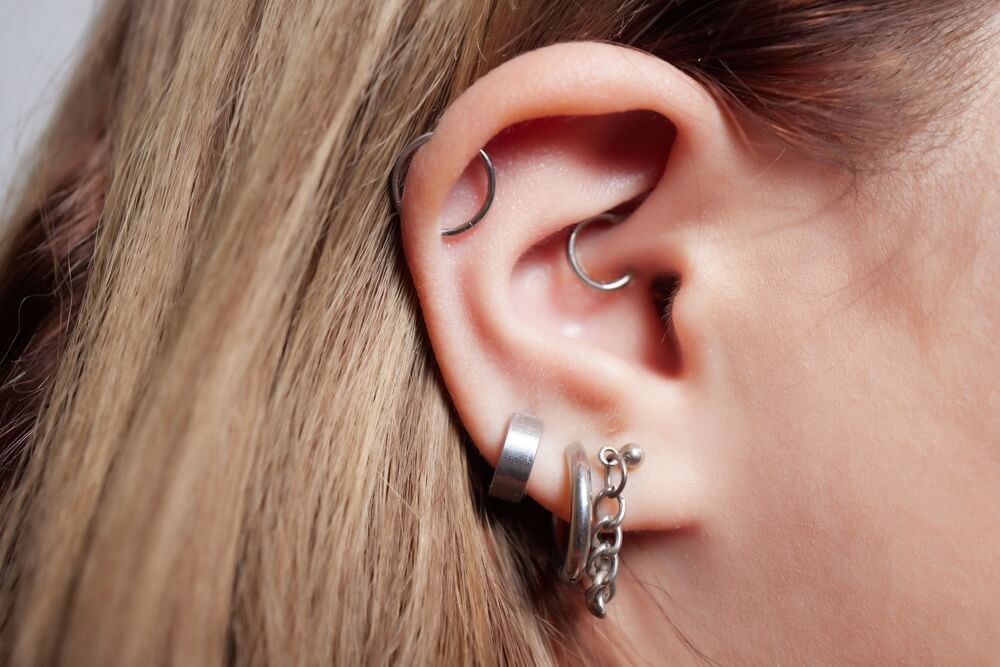 Body piercing has long been a form of self-expression,
with its history dating back to ancient civilizations. Whether it's a simple
earlobe piercing or a more complex one like a septum or dermal piercing, the
process involves creating a wound that requires proper aftercare to heal
effectively. In recent years, CBD has emerged as a popular natural holistic
alternative, thanks to its mind & body benefits. So, you might be wondering
the effectiveness of CBD in the context of body piercing aftercare, specifically
its potential benefits and the actual science behind its use.
Body piercing has long been a form of self-expression,
with its history dating back to ancient civilizations. Whether it's a simple
earlobe piercing or a more complex one like a septum or dermal piercing, the
process involves creating a wound that requires proper aftercare to heal
effectively. In recent years, CBD has emerged as a popular natural holistic
alternative, thanks to its mind & body benefits. So, you might be wondering
the effectiveness of CBD in the context of body piercing aftercare, specifically
its potential benefits and the actual science behind its use.
Understanding Body Piercing and Aftercare
Body piercing involves inserting jewelry into an opening made in the skin, which’s essentially a controlled wound. The healing process can vary depending on the location of the piercing, the individual's health, and how well aftercare instructions are followed. Common aftercare practices include cleaning the piercing with saline solution, avoiding touching or twisting the jewelry, and keeping the area dry and free from irritants.
Common Issues During Piercing Healing
Before exploring how CBD might help, it’s essential to understand the common issues associated with body piercings:
Pain and Discomfort: The piercing process involves puncturing the skin and inserting jewelry, which naturally causes pain. The intensity can vary depending on the location and the individual's pain tolerance.
Inflammation: Post-piercing inflammation is a normal response as the body starts healing. This can lead to swelling, redness, and tenderness around the pierced area.
Infection: Piercings are susceptible to infections if not properly cared for. Bacteria can enter through the wound, leading to complications that require medical attention.
Keloids and Scarring: Some individuals may develop keloids (overgrown scar tissue) or other types of scarring around the piercing site.
Note: Healing times vary widely depending on the piercing location and the individual's health. During this period, discomfort and irritation are common.
Getting to Know CBD: A Brief Overview
Cannabidiol (CBD) is a compound derived from the cannabis plant. Unlike tetrahydrocannabinol (THC), another compound found in cannabis, CBD doesn’t produce a psychoactive effect. This means it won't make you feel "high”.
Now, cannabidiol interacts with the body's endocannabinoid system (ECS), which has a crucial role in regulating various physiological processes such as pain sensation, immune response, and inflammation. The ECS consists of receptors (CB1 and CB2), endogenous cannabinoids (endocannabinoids), and enzymes responsible for breaking down these cannabinoids. CBD primarily interacts with CB2 receptors, which’re abundant in the immune system and peripheral tissues, including the skin.
CBD is generally considered a good cannabinoid to take, but it can cause some side effects, especially when taken in large doses. These can include dry mouth, dizziness, and changes in appetite.
Potential Benefits of CBD for Piercing Aftercare
CBD holds significant promise as a complementary aid for post-piercing care, particularly for the following:
1.Pain Relief: CBD is known for its analgesic properties, which can help reduce pain and discomfort after getting a piercing. It works by interacting with the ECS to modulate pain signals.
2.Anti-Inflammatory Effects: One of the primary benefits of CBD is its anti-inflammatory action. By reducing inflammation, CBD can help minimize swelling and redness around the piercing site, promoting faster healing.
3.Antibacterial Properties: Some studies suggest that CBD has antibacterial properties, which can help prevent infections at the piercing site. This is particularly important in the initial stages of healing when the risk of infection is highest.
4.Anxiety Reduction: The experience of getting a piercing can be stressful for some individuals. CBD has been shown to have anxiolytic (anxiety-reducing) effects, which can help calm the nerves before and after the procedure.
5.Scar Prevention: CBD's anti-inflammatory and skin-regenerative properties may also aid in reducing the likelihood of developing keloids and other forms of scarring.
Application Methods of CBD for Piercing Aftercare
CBD is available in various forms, in order for you to get its potential therapeutic properties:
§Topical CBD Products: Creams, balms, and oils can be applied directly to the piercing site. Topical application allows CBD to be absorbed through the skin, targeting localized pain and inflammation.
§Oral CBD Products: CBD tinctures, capsules, and edibles can be ingested to provide systemic relief. Oral consumption of CBD can help manage overall pain, reduce anxiety, and support the body's natural healing processes.
§CBD Vapes: These can be pre-filled cartridges or AIO (All-In-One) disposable vape pens that heat up the CBD e-liquid to create a vapor that can be inhaled. Vaping CBD allows for fast absorption into the bloodstream, providing quick but shorter effects.
CBD Scientific Evidence and Studies
While anecdotal evidence supports the use of CBD for piercing aftercare, scientific studies specifically focused on this application are limited. However, numerous studies on CBD's general effects on pain, inflammation, and skin health provide a strong foundation for its potential benefits, such as the following:
ØPain Management: A 2018 review published in Frontiers in Pharmacology highlighted CBD's effectiveness in managing chronic pain conditions. Although this review did not focus on piercing pain specifically, the findings suggest that CBD can help alleviate acute pain as well.
ØAnti-Inflammatory Effects: A study published in the Journal of Clinical Investigation in 2014 demonstrated that CBD can reduce inflammation by inhibiting the production of pro-inflammatory cytokines. This property is particularly beneficial for reducing post-piercing swelling and redness.
ØAntibacterial Properties: Research published in the journal Molecules in 2019 found that CBD has significant antibacterial activity against various strains of bacteria, including antibiotic-resistant strains. This property could help prevent infections in new piercings.
ØAnxiety Reduction: A study published in Neurotherapeutics in 2015 reviewed the anxiolytic effects of CBD and concluded that it has potential as a treatment for various anxiety disorders. Reduced anxiety can contribute to a more relaxed experience before and after getting a piercing.
Practical Tips for Using CBD After a Piercing
Whether you're a first-timer or an experienced enthusiast, CBD could be the key to a more pleasant and worry-free piercing experience, assuming you use it the right way, by doing the following:
1.Consult with a Professional: Before incorporating CBD into your piercing aftercare routine, it's essential to consult with a healthcare professional or a knowledgeable piercer. They can provide guidance on appropriate CBD products and dosages.
2.Choose High-Quality CBD Products: Not all CBD products are created equal. Look for products that are third-party tested, contain high-quality CBD, and are free from harmful additives.
3.Start with a Low Dose: If you're new to CBD, start with a low dose and gradually increase it as needed. This approach allows you to monitor your body's response and adjust accordingly.
4.Maintain Good Hygiene: While CBD can aid in the healing process, it's crucial to follow standard aftercare practices, such as cleaning the piercing regularly with saline solution and avoiding unnecessary touching or twisting of the jewelry.
5.Monitor for Allergic Reactions: Although rare, some individuals may be allergic to CBD or other ingredients in CBD products. If you notice any signs of an allergic reaction, such as itching, rash, or increased irritation, discontinue use and consult a healthcare professional.
For Your New or Next Piercing, Try Using CBD Afterwards
Overall, CBD has the potential to be a valuable addition to body piercing aftercare, Still, while scientific studies specifically focused on CBD's effects on piercing aftercare are limited, existing research on its general therapeutic properties provides a strong foundation for its use. As with any new treatment, it's essential to consult with a healthcare professional and choose high-quality products to ensure safe and effective use. By combining CBD with standard aftercare practices, individuals can support the healing process and enjoy their new piercings with minimal discomfort and complications.
Could CBD Help with Different Arthritis Conditions?
Arthritis, a prevalent and often debilitating condition, affects millions of people worldwide. Characterized by inflammation, pain, and stiffness in the joints, arthritis can significantly impair quality of life. Traditional treatments include medications, physical therapy, and sometimes surgery, but these methods can have limitations and side effects. In recent years, Cannabidiol (CBD), a non-psychoactive compound derived from the cannabis plant, has emerged as [...]
Sweet, Sour, Fruity or Even “Flavorless” Tinctures – The Choice is Yours!
For those in the market for CBD oil tinctures, you must choose your product wisely, as they do vary. First of all, you have to know how to choose the right milligram strength for your needs. Also, you have to consider the company from which to purchase, as different companies make slightly different formulas.Another thing that’s very [...]
Getting the Right Timing Down When Taking CBD in 2024
For most of us, when we take CBD, it’s because we are looking for some type of purpose. This is why it’s important to time your hemp intake properly. The thing about cannabidiol (CBD) is that it can take a while to absorb into the body depending on the type of administration method that you’re using. This [...]
For Newbie CBD Users: Developing and Then Enhancing Your CBD Daily Routine Here in 2024
If you’ve been reading up on cannabidiol (CBD), you’re probably aware of the fact that it has the potential to help in terms of mind & body effects. Therefore, it really is no surprise that more people are interested in finding ways to incorporate CBD into their daily lives. The question is, however, what is the best way [...]
What is Polyethylene Glycol (PEG) and Why Shouldn’t It Be in CBD E-Liquids?
Polyethylene glycol (PEG) is a polyether compound, a polymer made by linking together units of ethylene glycol, a simple diol compound. It is widely used in various fields due to its unique properties. However, when it comes to CBD products, specifically CBD E-Liquids, you might have noticed a lot of brands not using it. If you’re wondering why this, [...]
What are the Different Types of Carrier Oils in CBD Products?
Did you know that carrier oils are crucial to cannabidiol because they help dissolve the cannabinoid’s molecules? Well now you know. You see, since they can be absorbed by the body, they have some key benefits. However, not all carrier oils are the same, and their differences can have numerous effects.What is Carrier Oil and Why [...]
What are Solvents and Why Shouldn’t They Be Used in CBD E-Liquids?
In the hemp-derived product industry, solvents are intended to extract cannabidiol (CBD) and other cannabinoids from the original hemp plant material. Getting a better idea of how these solvents are utilized and how CBD products are tested once they’re created is quite important in more ways than you can imagine.What are Solvents?Solvents are substances, usually liquids, that have the ability [...]
What are Phytonutrients and Why are They Used in Hemp-Based Products?
Phytonutrients, also known as phytochemicals, are natural compounds produced by plants. They are found in fruits, vegetables, grains, legumes, nuts, and seeds. While not essential for keeping you alive, unlike vitamins and minerals, phytonutrients could help prevent diseases and keep your body working properly, but more research is still needed on this.Phytonutrients are best obtained through a varied [...]
Everything You Need to Know About MCT Oil in 2024
MCT oil, short for Medium-Chain Triglyceride oil, is a supplement made from a type of fat called medium-chain triglycerides. MCTs are found naturally in coconut oil, palm kernel oil, and dairy products. MCT oil is popular in the wellness community and is often used in diets like the ketogenic diet.The main feature of MCTs is that they're metabolized differently [...]
 Loading... Please wait...
Loading... Please wait...



